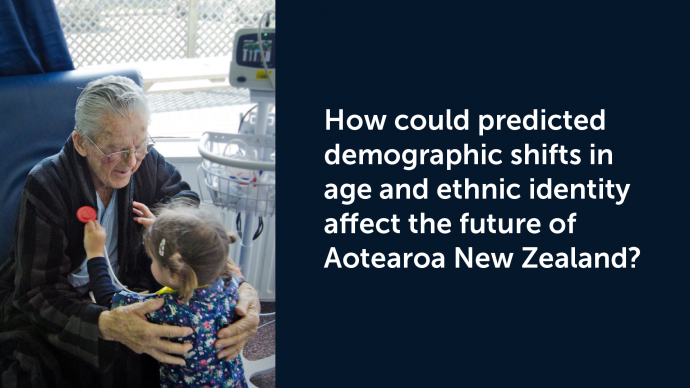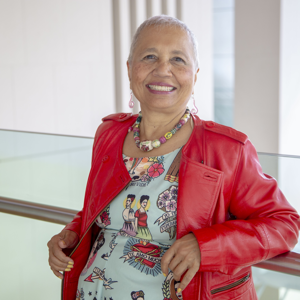Expert perspective: Emeritus Professor Edwina Pio ONZM

Emeritus Professor Edwina Pio ONZM, New Zealand's first Professor of Diversity, calls for everyone who calls Aotearoa home to be able to contribute more fully towards making it an even better place to live.
In a volatile ambiguous world, immigration, ageing and diverse faiths continue to be omnipresent phenomena. Yet there is often deep anxiety about immigrants, particularly those who look different from the majority population. Aotearoa New Zealand is one of the most ethnically diverse nations on earth as well as one that is growing older. While the population identifying with European ethnicities remains the largest at nearly 3.4 million or 67.8 percent, individuals identifying with Māori, Asian, Pacific peoples, and Middle Eastern/Latin American/African (MELAA) ethnicities increased their share of the total population, based on the 2023 census. Just under 30 percent of New Zealanders are born overseas in 200 different birthplaces, and the fastest growing languages are Punjabi, Tagalog, and Afrikaans. Though the largest religious group remains Christianity at 32.3%, the next largest religious groupings are Hindu, at 2.9%, and Islam at 1.5%.
In our woven universe, ethnic communities are largely invisible in public sector data based on the Ethnic Evidence Report 2024. This can translate into being missed in government investment, policy development, and service delivery interventions. Demographic shifts are an opportunity to reinterpret, reshape, and recalibrate the stories we tell as Aotearoa becomes browner and older. We must emphasise to immigrant populations that many of them have selected this country for its gender egalitarianism, natural beauty and high standards of living and hence they too are responsible for their actions and practices in fashioning Aotearoa’s future.
As a country, we must demystify diversity and counter hegemonic narratives. For immigration is more than the deliciousness of butter chicken and dumplings and for immigrants more than pies and pavlovas. We must fracture compounded exclusions, design multiple pathways of reciprocity and signifiers of legitimacy which incorporate Asian, African, Middle Eastern, Latin American perspectives along with Eurocentric and Anglo-American worldviews. In this fracturing, we must preserve the ecosystems in our natural environment and emphasise to all who enter New Zealand the critical value of Kaitiakitanga, Kotahitanga and Manaaki.
Undoubtedly, changing demography signals narrative shifts and complex landscapes with mutual and multiple pathways of reciprocity and change. Migrants bring with them gifts of knowledge, highly skilled competencies, multifarious worldviews and trade connections. However, they do not always get equal returns for their educational investment and employment experience and are often not in the pipeline for leadership roles.
Yet we can hold true to our deeper origins, where for over a century Aotearoa has been a place of accessible and transformative opportunities, a place which aspires to both equity and excellence, through fully engaging with Te Tiriti and anchored in the culture and whenua where we stand.
The question each of us must ask ourselves is: What kind of Aotearoa do we want and what are we prepared to do to make that happen? In a shifting world of heterogeneity and diasporas, we have choices… the choice to put back into the kete, for the treasured privilege of living in this beautiful country.
Published July 2025
 Emeritus Professor Edwina Pio ONZM is Aotearoa’s first professor of diversity, a Fulbright alumna, recipient of Te Rangi Hiroa Royal Society medal, and Duke of Edinburgh Fellowship. She is Associate Professorial Fellow at the Oxford Institute of Population Ageing, Research Fellow at Black Friars Hall Oxford University UK, and Visiting Professor at the University of Turku, Finland.
Emeritus Professor Edwina Pio ONZM is Aotearoa’s first professor of diversity, a Fulbright alumna, recipient of Te Rangi Hiroa Royal Society medal, and Duke of Edinburgh Fellowship. She is Associate Professorial Fellow at the Oxford Institute of Population Ageing, Research Fellow at Black Friars Hall Oxford University UK, and Visiting Professor at the University of Turku, Finland.
